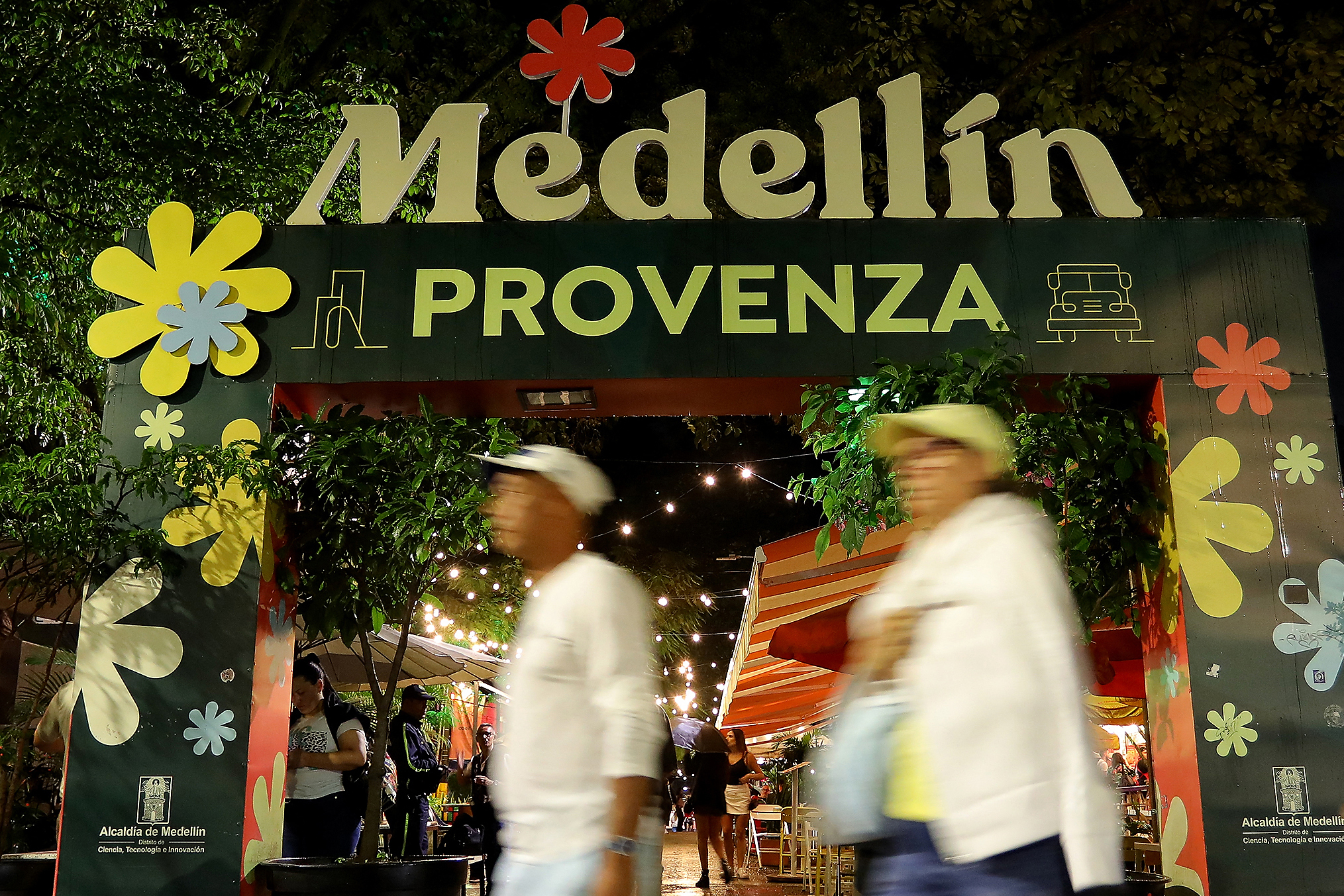Uncommon Knowledge
Newsweek is committed to challenging conventional wisdom and finding connections in the search for common ground.

In one of the luxury hotels that line the chic El Poblado neighborhood of Medellín, Colombia, a 25-year-old American citizen was found dead last Thursday. Matthew Watson Croulet had hopped into a taxi early in the morning disoriented, remembering nothing but the name of his hotel. According to police reports, hotel staff noted that Croulet appeared drugged and unwell. His body was discovered in his room at 9:30 a.m.
Croulet is the 29th tourist to die under violent or mysterious circumstances in Medellín so far this year — an average of more than one a week. If the pace continues, the city will close the year with 61 tourist deaths.
The birthplace of drug kingpin Pablo Escobar, Medellín was once infamously known as among the most dangerous cities in the world. But after years of work on its reputation, Medellín has since become one of the hottest summer travel destinations in the world. Last year, Time Out magazine named it the the “coolest” city in the world.
But a surge in tourism has brought a parallel increase in criminal activities targeting those visitors. On May 31, another U.S. citizen was found dead in a hotel in the tourist district of Laureles. Jaime Eduardo Cisneros, 54, was discovered lying on a bed half-naked, rolled up in a sheet, with no signs of violence. Authorities said he entered his room with a woman early in the morning, but only she left.
These recent deaths have brought international attention to the risks associated with traveling to Medellín. The U.S. Embassy in Bogotá, Colombia’s capital, issued a warning in January about the dangers posed by criminals who use dating apps to lure, drug, and rob tourists, with notable cases of Americans being robbed after “matching” on apps like Tinder, Bumble and Grindr.
Many of the deaths involve scopolamine, a drug used to treat nausea and vomiting from motion sickness. Known as “Devil’s Breath,” scopolamine has long been a favorite of criminals, used to incapacitate their victims in robberies and sex crimes.
Yiri Milena Amado, a former director with the regional attorney general’s office, noted that “deadly cocktails” of drugs and alcohol are often found in the deceased tourists’ systems.
The drug-aided robberies are undermining Colombia’s efforts to become more tourist-friendly and shake off its reputation for drugs and violence. The U.S. State Department has an active a travel advisory classifying Colombia as a “Level 3: Reconsider” destination, citing crime, terrorism, civil unrest and kidnapping, one notch below the most serious “Level 4: Do not travel.”
Colombian authorities say that visiting Medellin is safe. They attribute the violence to tourists seeking out drugs, narco-culture and prostitution.
“The situations in which these foreign tourists are negatively affected are almost always related to drugs or prostitution,” Carlos Calle, head of the Medellín District Attorney’s Office’s Tourism Observatory, said in an interview with the Spanish newspaper El País.

Some tourists have been caught in sex trafficking networks involving minors. One notorious case involved Timothy Alan Livingston, a 36-year-old U.S. citizen found by police in a hotel in El Poblado with two girls, aged 12 and 13.
According to Colombian law, sexual consent for minors under 16 exists only if the person seeking sex is no more than three years older than the minor. Despite his age, Livingston was released shortly after his arrest and returned to Florida. A Colombian judge issued a warrant for his arrest in April, but he remains at large in the U.S.
In response to this case, Medellín Mayor Federico Gutiérrez issued a six-month prostitution ban in tourist areas to combat child exploitation. “I want Medellín to be an example in the fight against the sexual exploitation of children,” he said.
Over the past three months, the city has been papered with posters attempting to prevent the sexual abuse of minors. “Don’t even try, it’s a crime,” they say.
For almost 20 years, Medellín has been actively working to shed its notorious narco past. In 2019, Mayor Gutiérrez ordered the demolition of the infamous Monaco Building, where Escobar famously lived and operated. The Casa Museo Escobar, a museum run by Escobar’s brother Roberto “El Osito” Escobar, was also shuttered.
Since Escobar’s death in 1993, Medellín has focused on urban renewal, social programs and promoting cultural and technological advancements, earning international recognition for its transformation. High-end restaurants and glassy hotels now line many of the streets that used to be under the control Escobar’s Medellín Cartel. Despite that, the city is still home to many criminal gangs that are drawn to the growing number of tourists drawn to the city and its remaining illicit activities.
Do you have a story Newsweek should be covering? Do you have any questions about this story? Contact LiveNews@newsweek.com
Newsweek is committed to challenging conventional wisdom and finding connections in the search for common ground.
Newsweek is committed to challenging conventional wisdom and finding connections in the search for common ground.